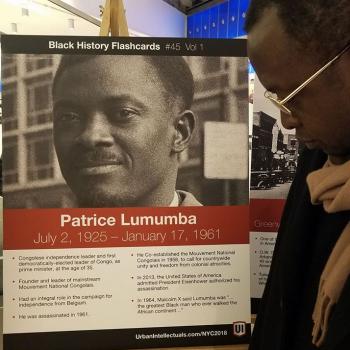"To be ignorant of what occurred before you were born is to remain always a child." ~ Marcus Tullius Cicero
One of the reasons I have always been drawn to smaller, less mainstream films is their ability to use unusual locales and ethnic environments as the settings for their stories, rather than the highly Americanized environment found in the vast majority of Hollywood fare. Case in point, 2010's The First Grader.
Based on a true story, The First Grader recounts the unusual journey of Kimani N'gan'ga Maruge, an 84-year-old Kikuyu tribesman—and a survivor of the Mau Mau Uprising that signaled the beginning of the end for British Colonialism in Kenya—who takes the government's promise of "free primary education for all" literally, appearing on the doorstep of his local grade school eager to fulfill a lifelong goal: learning to read. Stubbornly refusing to take young headmistress Jane Obinchu's initial refusal as a final answer, the former freedom fighter persists, battles her resistance as fiercely as he battled the English many years before.
Equal parts exasperated and won over, Jane agrees to take him aboard, setting up a most unusual dynamic in the midst of the region's already-overburdened schoolhouse. But the greatest challenge to his success lies not in the schoolroom or in the lowly hovel the aging warrior calls home, but from without—from those who cannot understand his ravenous desire for learning, or those who understand it all too well and seek to thwart (or exploit) it for political, racial, and tribal advantage.
Maruge's tragic past—revealed in disconcerting flashbacks throughout the course of the film—greatly shapes his interactions with his young classmates. (In one of the film's most disturbing scenes, Jane's innocuous request that Maruge sharpen his pencil triggers a horrifying flashback to his days in the camps erected to imprison the Mau Mau, reminding viewers that this stoic, independent elder still carries the scars of his past deep within.) Yet these youngsters embrace their aged companion with the graciousness and kind-hearted indifference so peculiar to children. The true opponents to his endeavors—the school's suspicious (even furious) parents and the educational board's frustrated bureaucrats—are burdened by his uncomfortable role in a past many Kenyans wish to forget. As the situation escalates, his safety is threatened, his motives are questioned, and the achievement of his missions is called into serious doubt. It seems that everyone around him opposes his efforts—everyone, that is, but the young children who are blessedly free of preconceptions, and the valiant teacher who sees only his desperate desire to learn. In a last-ditch effort to stem the rising tide of tension and violence that threatens to wash away his dreams, Maruge travels to Nairobi to confront the new government's policymakers themselves. But the question remains: will his troubled, troubling past aid him at last, or prove to be the final, unconquerable obstacle to his dreams?
A bit predictable at times—Are there serious doubts as to how Maruge's story will end? And how many Dead Poets Society/The Emperor's Club/Mr. Holland's Opus-style "spectacular but unrecognized by all but their students" teachers can there possibly be?—the film fluctuates between its desire to tell Maruge's extraordinary (indeed Guinness World Record-setting) story and its eagerness to highlight the work of the young woman who makes it possible.
Perhaps more problematically, one begins to wonder if the Loyalists and their British overlords are painted a bit too broadly. There is ample evidence that the reality behind the film is a bit more complex than that which appears onscreen, defying the easy labels used by its storytellers. Maruge/Mau Mau = Good; British Colonialists/their Kenyan Loyalist friends = Bad? That characterization is a convenient one, particularly to those seeking to simultaneously inspire and tell a meaningful story in under two hours. Even the most cursory of journeys through Kenya's multi-faceted history, suggests that the cultural and historical backdrop Maruge's story are not quite as tidy as the film suggests. On that particular front, The First Grader may well be accused of over-simplification.





